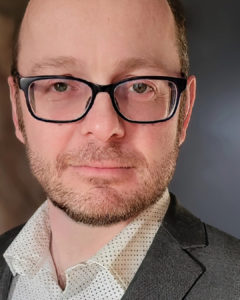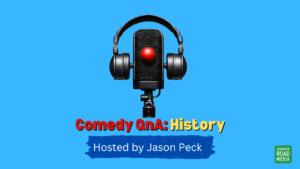I wanted to write about my experiences of Toastmasters in the U.S. compared with my experiences with it in the U.K. While the main focus will be geared towards fellow Toastmasters, I will try provide useful information for the non-member too.
The great thing about Toastmasters is that essentially you can pretty much go to any meeting around the world and find like-minded people. Not only that, but there is also a lot of familiarity as the vast majority of roles are the same. So if you do go to a Toastmasters event in another city or country, like I did, then there is a sense of comfort in that public speaking culture.
That said, I think Toastmasters in the U.S. can learn a few things from Toastmasters in the U.K. and vice versa. The picture I paint of Toastmasters here in Chicago, is based upon three different clubs that I’ve been to and about half a dozen meetings accumulatively across those clubs.
What the U.S. clubs can learn from the U.K. is to tighten up some of the roles slightly. Here’s what I mean; most of the meetings I’ve been to, the Table Topics Master doesn’t recruit potential speakers before the meeting begins. As a result the TT Master is often left at the front of the room asking for volunteers and people aren’t forthcoming.
There are numerous reason why volunteers aren’t forthcoming, some members have speaking roles already in that meeting. While others in the room are guests and so their fear of public speaking could take over and prevent them from going up. Or they may just not be overly familiar with how Toastmasters operates and want to wait to see what the others do.
It always seems a struggle to get people to go up and speak.
So the first thing the Toasties clubs in the U.S., specifically in Chicago, can learn is to have their table TT Masters speak to people BEFORE the meeting starts and encourage them to participate. That way not only will they have people to call upon, but that part of the meeting will flow more smoothly.
Also, here in the U.S. the role of The General Evaluator often runs the second half of the meeting and it’s taken by a member of the club.
In the U.K. the G.E. role is taken by a member from another club. When I first got to Chicago, I assumed that all the clubs work in the same way. So I tried to be a G.E. at a number of different clubs in order to evaluate them so that I can find the best one that I want to be a member of.
Unfortunately, most of the clubs I contacted didn’t use the G.E. role in the way that I was used to. Not only does the role not occur at the end of the meeting, but often they don’t really provide feedback on the meeting.
The G.E. roles in the U.S. seem to be there simply to introduce the prepared speech evaluators. I was G.E. at a club recently and discovered that evaluating the meeting is actually part of the role, as I thought it was, but often it doesn’t seem to happen. I get the impression from the different clubs I’ve been to, that they aren’t that in love with receiving constructive criticism and moving forward in the development of the club.
As a result, how can a club improve and develop?
I mean as far as I’m aware they all use the points system as set down by Toasties International whereby a club can achieve a certain distinction based upon the amount of speaking manuals completed, etc. There’s development in that respect, but it doesn’t seem to be there in the development of the meeting and the effective use of the roles.
Interestingly to note, reviewing the “About your Club” section in the CC manual, the role of the G.E. does introduce the leadership roles. Which means that in the main the Brits have this wrong too, as the G.E. often appears, God-Like, at the end of the meeting for their appraisal.
But rarely, in the U.S., have I seen the role come from outside, or provide feedback on how the meeting runs. But by not utilizing the role of G.E. to its fullest extent, I really think that clubs miss out on being able to really develop and progress.
Both the U.K. and U.S. can learn a valuable lesson here.
So what specifically, can Toastmasters in the U.K. learn from their U.S. counterparts?
Meeting length!!
This is a really important factor I think. In the U.K. Toasties meetings frequently hit the two-hour mark. Some clubs go for two-and-a-quarter hours whilst others hit two-and-a-half hours.
This always puzzled me as I would look at the back of my Competent Communication manual and on p.63 (of my copy anyway) there’s a sample meeting agenda that lasts for an hour!
Now granted it only has room for two prepared speeches, but the club in Chicago I’ve just joined, Lakeview Toastmasters, has 3 prepared speeches and still comes in at an hour and a half. It’s much more acceptable. I think in the U.K. where we failed is by having a break. Sometimes we like to have a 10 minute break, which can stretch over to 15 minutes. In the U.S. they have no breaks.
One thing I will say is that a lot of clubs here in Chicago are business clubs. So members have to get their meeting over with during their lunch breaks. Which means a shorter time-frame makes sense. But Lakeview is one of the few evening clubs and it manages 90 minutes. There was another evening club I went to that was on the shorter side too.
The U.K. meetings really could do with speeding up. Two-and-a-quarter hours is just a bit ridiculous if I’m honest as it beigns to encroach on your evening. With an hour-and-a-half you can still go home early and eat. Or go to the pub and socialise like I do.
For my new U.S. Toasties colleagues we really need to sort out the role of the Table Topics Master. For both the U.S. and the U.K you should take another look at the role of G.E. The U.S. needs to use more outside members and evaluate the meeting more and the U.K. needs to introduce the other leadership roles. The U.K. Toasties by itself needs to whip it’s meeting length into shape!
I’m sure there will be other things that come up on my Toastmasters adventures here in the U.S.




4 comments
Skip to comment form
Jason:
It is good to find out that not everybody does things the exact same way. If you think that your way is the only way, then you may have institutionalized something like a Ministry of Silly Walks.
Author
Hi Richard,
Thanks for your comment and post over at your blog. This article was about things that I think that both Toastmasters in the U.K. and the U.S. can learn from each other for mutual growth.
I’m not saying that everyone shoud do the same thing at every meeting. Far from it. For instance, as you said some clubs in both countries use lights for their timings, others use colored card.
Your post specifically referred to the role of General Evaluator. At some clubs in the U.K., when clubs are unable to get someone from the outside, they use an internal member. There’s nothing inherently wrong with doing that.
What I’m suggesting is that by using members from other clubs we get an objective view of our own club and get suggestions for how to improve. Not only that, but it also helps to foster community amongst clubs across a whole Division.
A lot of people who are involved in Toasties are keen for self improvement, so why shouldn’t a club evolve and develop too?
Hi Jason,
I’ve just completed a six month placement in San Diego, and now I’m back in the UK. While I was out in the US I went along to a couple of Toastmasters clubs and I agree that there are obvious differences.
I do prefer the UK style of General Evaluations. It makes sure that everyone receives feedback and it promotes relationships between clubs.
I was GE a couple of times when I was there. It was difficult to take notes and introduce functionaries/evaluators, furthermore the role of Toastmaster is reduced to a minor role. However I made sure that all the functionaries and evaluators got a brief CRC evaluation and they very well received.
Great insights, keep writing,
Andy
.-= Andrew Smith´s last blog ..Three steps to writing a better speech title =-.
Author
Hey Andy,
Thanks for dropping by. I understand what you mean. I also found that the role of the President has so far been virtually nonexistent. Most clubs in the U.K. open and close their meetings with words from the President. I have yet to see a welcome from a President of a club.
But as I pointed out in my post it’s not about making all clubs vanilla. There are some fabulous things that the clubs here in the U.S. do.
Hope to see you back here again some time.
Cheers,
Jason